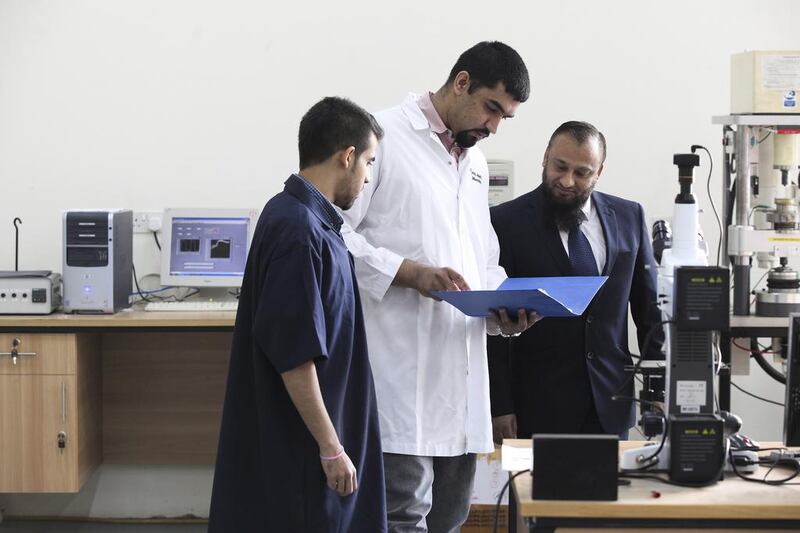DUBAI // Heriot-Watt University is the latest institution to offer PhDs in the emirate, filling a gap in the country’s ambition to become a knowledge-based economy.
Six students at the Dubai branch of the Edinburgh-based university will receive scholarships to allow them to study full time in the three main schools; built environment, engineering and management. This will give the academically gifted the opportunity to waive the Dh68,000 annual fee for the three-year doctoral programme.
Dr Ammar Kaka, director of the Dubai campus, said full-time students would be given priority.
“When someone is doing this full time, you tend to get much more out of them as it’s a full-time job. With research you’re trying to do something no one has ever done and that’s innovative, and as the research drags on over many years perhaps someone will beat you to that. You need research that’s timely.”
He also said offering a doctoral programme would attract more high-quality academics to the institution.
Dr Assem Al Haj, one of the doctoral supervisors, said research was what attracted him to relocate from Aberdeen, Scotland.
“We [academics] survive on research. For a university like Heriot-Watt it’s our bread and butter. For staff, the one thing that we love is doing research.”
His built-environment department will focus on sustainable development and infrastructure.
Dr Rehan Ahmed will supervise the engineering students but he has already been working on building collaborations with local universities, such as the University of Sharjah and American University of Sharjah, that will open access to shared facilities and publications for both academics and incoming doctoral students.
“It’s the way research should be driven in this part of the world as well,” he said. “The economy and lifestyle here attracts good talent but it is the lack of infrastructure and resources [such as funding] which has been the biggest challenge.”
Dr Warren Fox, head of higher education at the Knowledge and Human Development Authority, Dubai’s education regulator, welcomed the addition of Heriot-Watt to the other six universities currently offering PhDs in the emirate.
“The fact they’re supporting this with scholarships means they [Heriot-Watt] are doing this for academic reasons, to help to build stronger research and graduate programmes and are not just looking at it for an economic return,” he said.
mswan@thenational.ae






